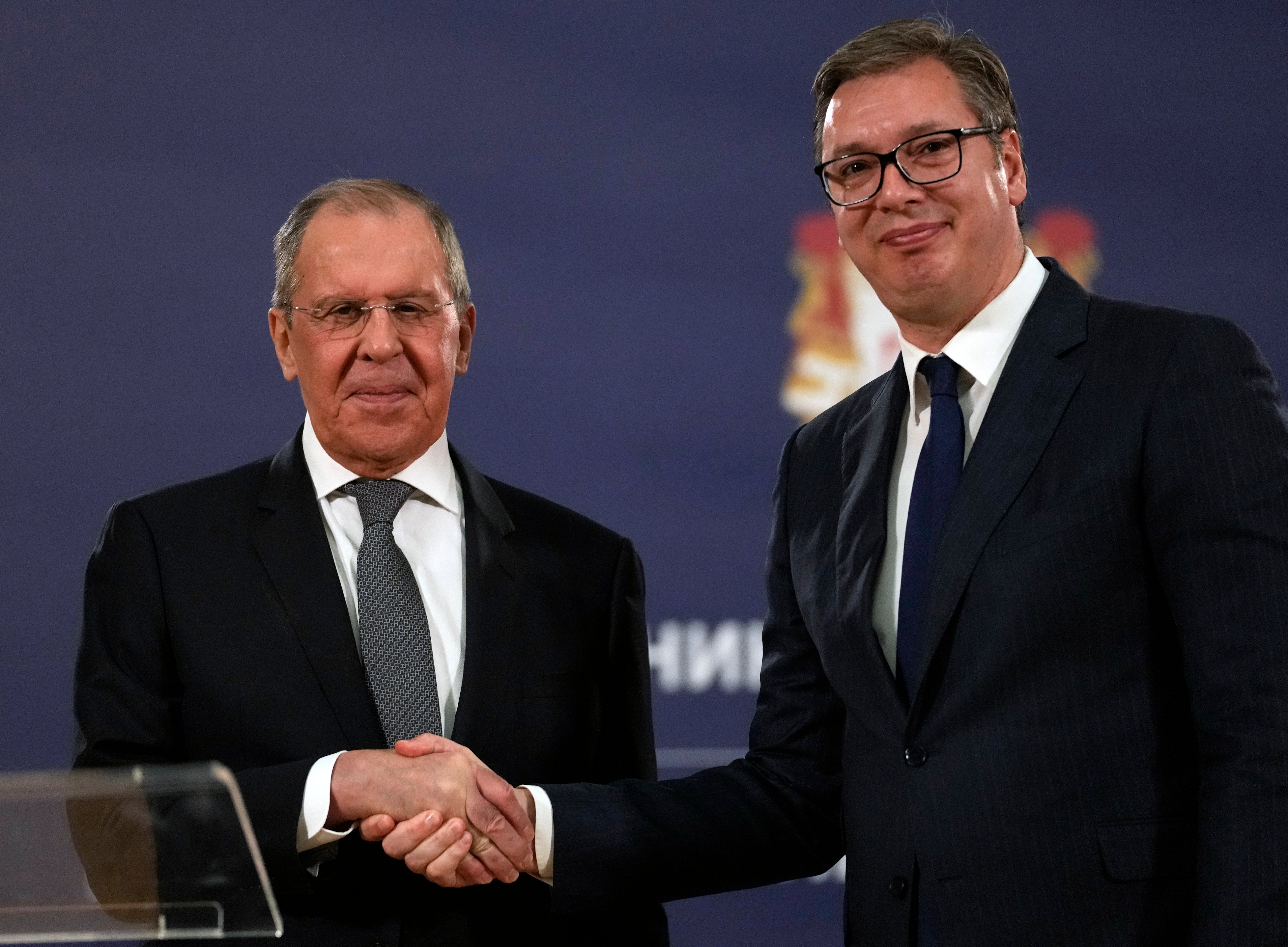EU, US question Serbia's EU commitment after Russia deal
The European Union and the U.S. have questioned Serbia’s commitment to join Europe’s 27-nation bloc after Belgrade signed an agreement with Moscow pledging long-term “consultations” on foreign policy matters amid the Russian aggression in Ukraine

Your support helps us to tell the story
From reproductive rights to climate change to Big Tech, The Independent is on the ground when the story is developing. Whether it's investigating the financials of Elon Musk's pro-Trump PAC or producing our latest documentary, 'The A Word', which shines a light on the American women fighting for reproductive rights, we know how important it is to parse out the facts from the messaging.
At such a critical moment in US history, we need reporters on the ground. Your donation allows us to keep sending journalists to speak to both sides of the story.
The Independent is trusted by Americans across the entire political spectrum. And unlike many other quality news outlets, we choose not to lock Americans out of our reporting and analysis with paywalls. We believe quality journalism should be available to everyone, paid for by those who can afford it.
Your support makes all the difference.The European Union and the U.S. on Monday questioned Serbia’s proclaimed commitment to join Europe’s 27-nation bloc after Belgrade signed an agreement with Moscow pledging long-term “consultations” on foreign policy matters amid Russia's war in Ukraine.
Serbia’s officials signed the deal last week in New York with Russian Foreign Minister Sergey Lavrov on the sidelines of the U.N. General Assembly, where most Western delegations shunned Russia’s top diplomat over the country’s invasion of Ukraine.
Serbia’s foreign ministry has sought to downplay the importance of the signed agreement, saying it's a “technical” one and relates to bilateral ties and not security issues.
Although Serbia said it supports Ukraine’s territorial integrity, its right-wing government has repeatedly refused to join Western sanctions against Slavic ally Russia. Aligning foreign policies with the EU is one of the main preconditions for joining the 27-nation bloc, but Serbia has increasingly defied calls to do so.
The news of the deal triggered harsh criticism from both EU and U.S. officials.
European Commission spokesman Peter Stano warned on Monday that Serbia’s relations with Russia can't be “business as usual” under the current circumstances when Moscow is violating the U.N. Charter with its armed forces committing atrocities in Ukraine.
“It’s a very clear sign of their intention to strengthen their ties, to further strengthen relations between Serbia and Russia and this is raising serious questions,” he said. “We are taking this very seriously and we are following this up."
U.S. Ambassador Christopher R. Hill said “further alignment with Russia is a step in the wrong direction and contrary to Serbia’s stated European aspirations.”
“The United States believes that no country should be expanding cooperation with Russia while it continues its war of aggression against Ukraine,” Hill said in a statement to The Associated Press. “News of this agreement signed with Russia was surprising and stands in stark contrast with other constructive meetings in New York with Serbian officials.”
Under the 10-year rule of Serbian populist leader Aleksandar Vucic, a former ultranationalist, Serbia has been steadily sliding away from its proclaimed EU goals and establishing close political ties with Russia.